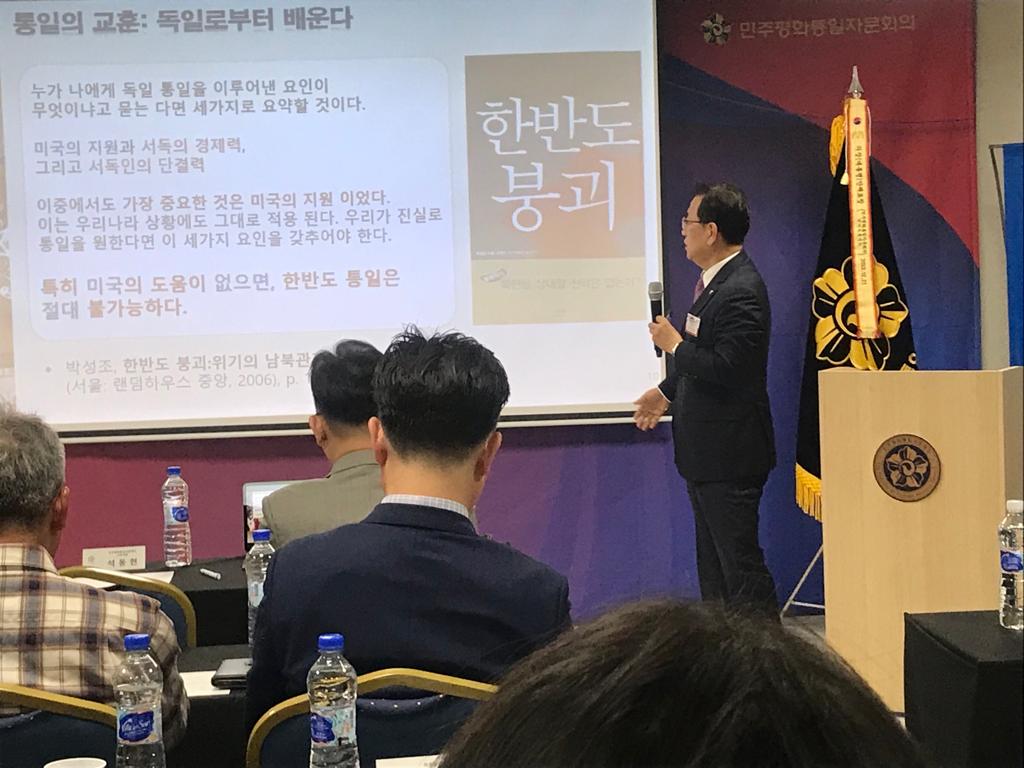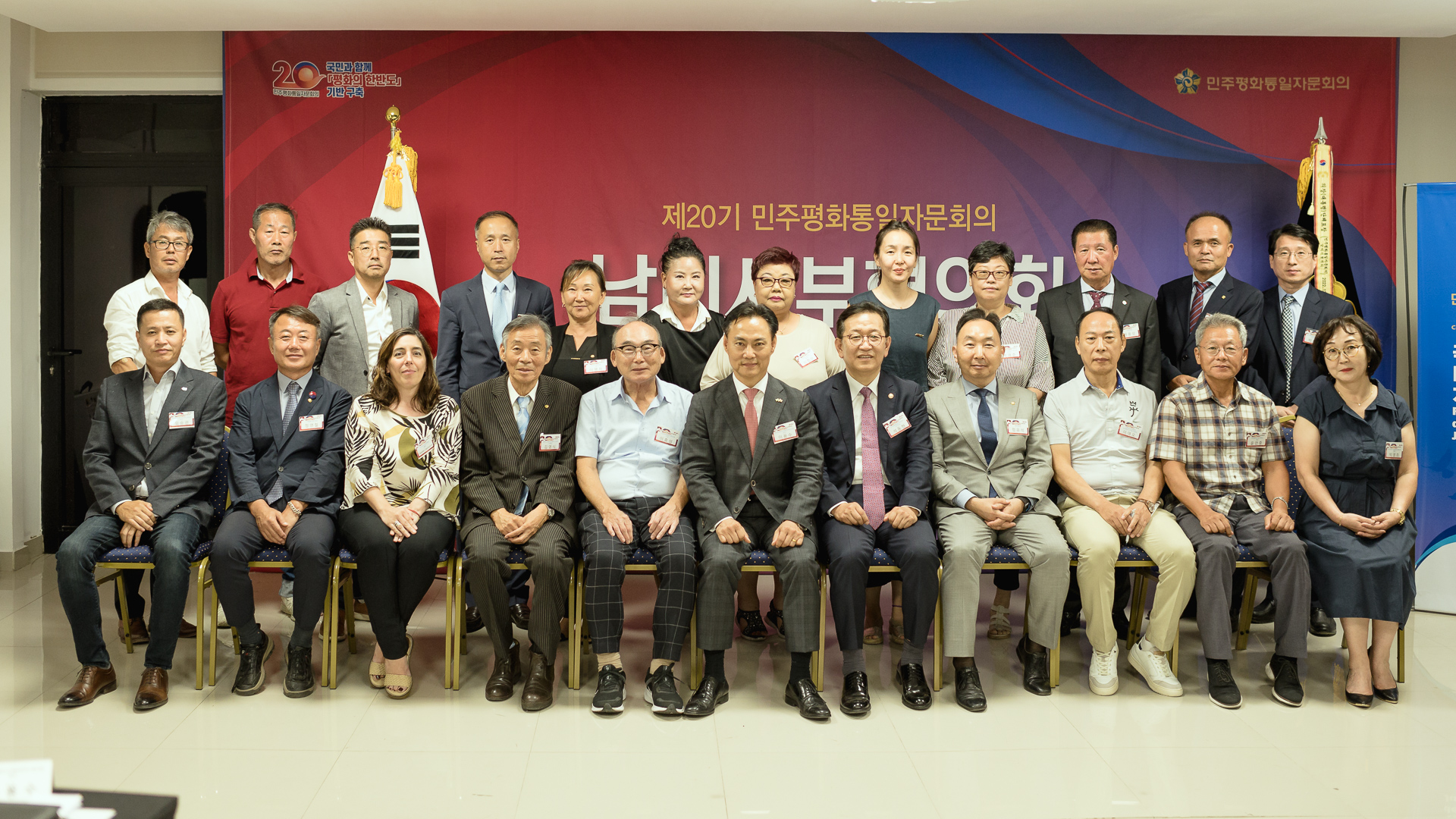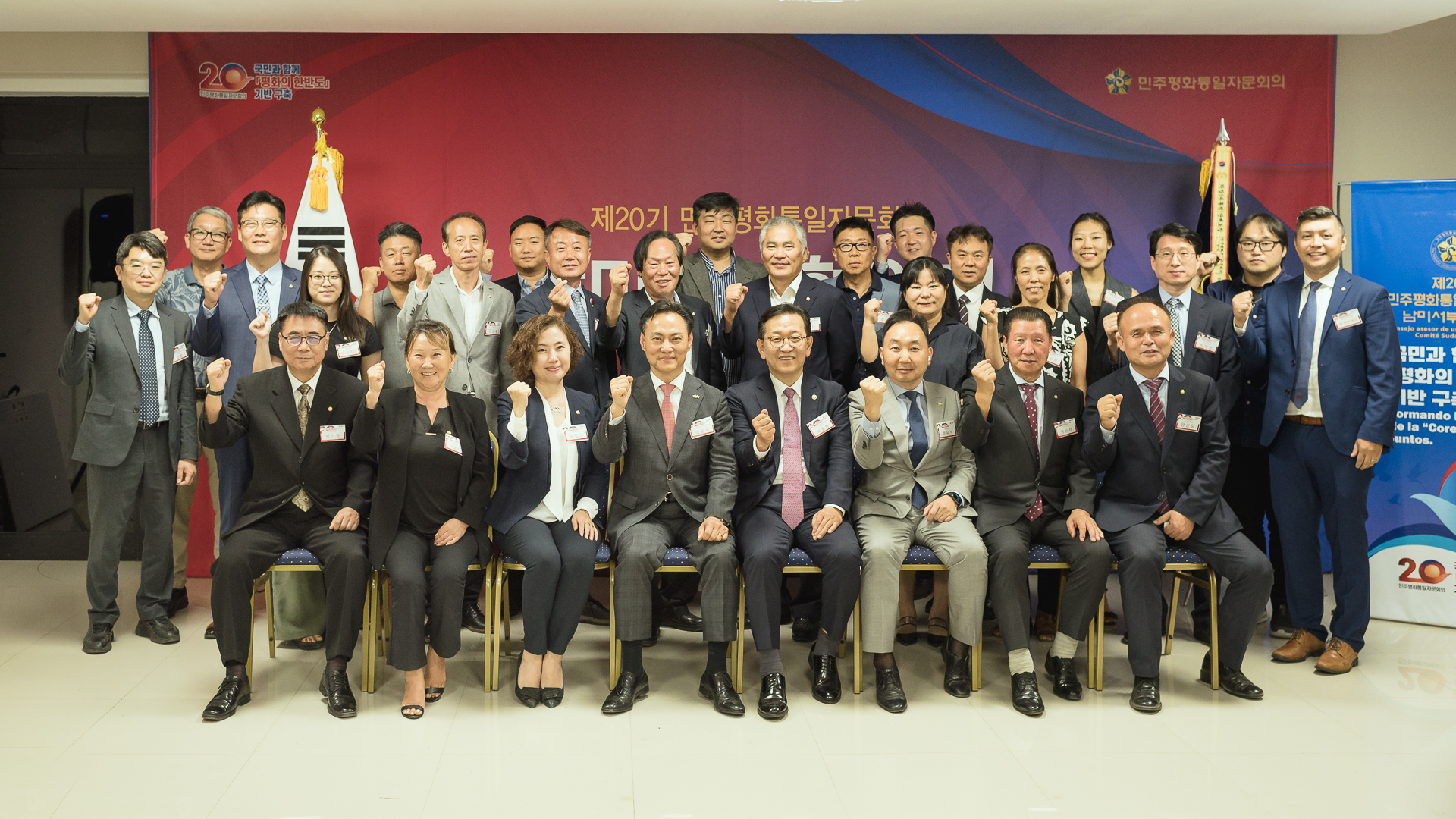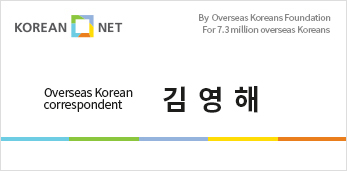Overseas Koreans Platform
- Main page
- Overseas Koreans Platform
- News Room
News Room
- Main page
- Overseas Koreans Platform
- News Room
- Country
- Argentina
- Date
- 2023.03.23

A special lecture on unification by Secretary General Seok Dong-hyeon of the Peaceful Unification Advisory Council (PUAC)
Despite its 70-year-long division, the desire for the unification on the Korean Peninsula has always been a vital agenda for both South and North Korea. However, such wish has been only prolonged without any outcome due to different views from both sides and power struggles among surrounding powerhouses. At present, a gap in all fields, including ideology, language, and economic structure, are widening even more as the division became permanent. Two Koreas, however, might share the same view on realizing a peaceful unification - the only way to resolve South Korea's low fertility rate, waned growth engine, and economic slowdown as well as North Korea's food shortages and lack of goods. When the North's underground resources and the South's advanced technologies are combined and land routes to China and Russia are opened through the North, two Koreas are highly likely to cherish economic effects but also an export expansion and a reduction on logistics costs.
No doubt all overseas Koreans are desperately yearning for the unification. In a situation where two Korean remains the only divided countries in the world under a truce, it is necessary to instruct the right awareness and a reality of the relations between the two Koreas. Before Korean products and Korean wave gained fame in the world, what many people thought of when they heard "South Korea" was North Korea's missile provocations and the leader Kim Jong-un. Furthermore, news on the North's missile launch has always been a top international coverage in local media and local people has been understanding that the outbreak of war may come anytime on the Korean Peninsula. This is why Koreans residing in Latin America, including Argentina, are earnestly longing for the peaceful unification. In an attempt to reflect overseas Koreans' opinions on the unification, South Korean government has established a branch office under the Peaceful Unification Advisory Council (PUAC) in South America in September 2021. The council, comprised of representatives from Argentina, Bolivia, Peru, Uruguay, Chile, and Paraguay, has hosted a number of seminars on the relations between the two Koreas and special lectures on unification for Koreans and local people even in the pandemic. Other than representatives of Argentina, representatives from Latin American countries joined the recent gathering via Zoom.
In line with the commemoration of the March 1 Movement this year, Secretary General Seok Dong-hyeon offered a special lecture on unification entitled "2023 Outlook on Inter-Korean Relations and Tasks for South Korean Government." Followed by the March 1 Movement ceremony, the pledge of allegiance, paying tribute to the deceased patriots, and singing of the national anthem of South Korea were held. Ambassador Lee Yong-soo of the Republic of Korea to Argentina, addressed the March 1 Movement commemorative speech on behalf of ROK President Yoon Suk-yeol of South Korea. In his address, President Yoon highly honored the patriotic martyrs for their noble sacrifice for the sake of the independence from Japanese colonial rule (1910–1945) and stressed on preparations for the future in the midst of prolonged global economic downturn and uncertainties. He further proposed different diplomatic breakthroughs compared to that of past administration by countering the North's nuclear issue jointly with Japan. The March 1 Movement ceremony ended with three cheers for the nation with the lead from Lee Hyo-seong, the council's advisor.
In his special lecture, Seok explained a keynote of current South Korean administration's policies toward North Korea. He said that sound retribution and retaliation can only deter provocations and emphasized an overwhelmingly strong combat readiness in order to achieve peace on the Korean Peninsula. He added that South Korea is willing to scrap the 9.19 Military Agreement if the North makes further provocations. Seok went on the say that common sense is never applied in national security and international strategy fields, but rather the logic of paradox is. That is, executive means of protecting national security such as weapons and the military need to be fully prepared in order not to use them. Seok further stated the importance of peace, but peace that is fulfilled from submission is not a peace at all and true peace comes only when justice is fulfilled - the current South Korean administration's differentiated approach from that of the preceding administration. Moreover, a motto 'brotherhood' claimed by the North ought to be regarded unrealistic because of struggles among powerhouses surrounding the Korean Peninsula, he said. Seok added that the nature of international politics does not allow divided countries to fulfill their unification solely on their own will and, particularly, underlined the role of the United States which had played a pivotal role in realizing the unification of Germany. He explained that historically all unifications have been fulfilled in a way a superior system or regime completely absorbs an inferior regime. What he meant by the superior regime here is that it is the regime having overwhelmingly robust economic and military might that can lead to the unification of a free democracy system.
In order to fulfill such unification, complete and verifiable denuclearization of the North in no doubt a prerequisite and the South is set to push forward with the "Audacious Initiative" as a core measure to realize sustainable peace and prosperity on the Korean Peninsula. In detail, firstly, natural resources and food exchange programs under a comprehensive agreement as well as pilot projects aimed at improving public livelihood in the North are included in the initiative. Secondly, an establishment of inter-Korean joint economic development committee, support on power transmission and distribution infrastructure, projects designed to modernize ports and airports, programs aimed at agricultural technology support, projects designed to modernize hospitals and medical infrastructure, and programs organized to provide international investment and financial support are also part of the initiative. Thirdly, the initiative details a full inter-Korean economic cooperation in an effort to pursue common prosperity via complete denuclearization, expansion of trading, implementation of inter-Korean joint economic development plan, and measures to normalize relations between the U.S. and the North. Exhausting disputes on unification issues between conservatives and liberals need to be refrained and unification competence from a private sector ought to be reinforced in order to boost interest and participation on peaceful unification from the public. The council has set up its main direction on forming foundation of peaceful Korean Peninsula with the people. Four detailed action plans under the direction are a promotion of counsels and proposals filled with people's voice, an implementation of peaceful unification-centered role in local fields, a leadership in practicing peaceful unification public diplomacy along with overseas Koreans, and a reinforcement of peaceful unification-centered role for young generation.
Lastly, Seok pointed out the significance of overseas Koreans as valuable human assets followed by the decision to newly establish the Ministry of Overseas Koreans, taking account of South Korea's gloomy reality on low fertility issue. The council delivered support funds to the Korean Elderly Association in Argentina, a Korean school, and the Association of Korean Studies in Argentina. The Association of Korean Studies, comprised of Argentine scholars and professors, is organized to promote Korean Studies academically by hosting seminars and conferences on Korean society and culture on a regular basis. Other members of the association who admires Korean culture and tradition support in communicating with local people on promoting awareness of unification on the Korean Peninsula. Besides, the council recently donated support funds to earthquake-hit Turkiye.

Heads of relevant organizations of the event pose for a group photo

A group of advisors take a group photo
